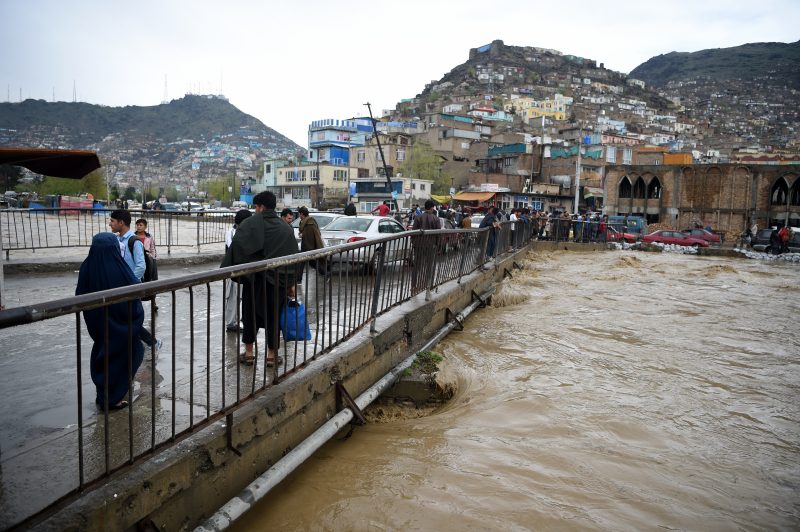Nearly half of rural Afghans face food insecurity: UN
Misery from drought in Afghanistan was only compounded this spring when rains finally did come, as downpours led to deadly flooding in provinces across the country (WAKIL KOHSAR)
Kabul (AFP) – Nearly half of all rural Afghans now face some level of food insecurity, a UN agency said Monday, as a historic drought and deteriorating security grip Afghanistan.
Described by some locals as the worst in a lifetime, Afghanistan’s drought had a devastating effect on rural populations last year, the UN Office for the Coordination of Humanitarian Affairs (OCHA) said in an overview of Afghanistan aid operations in 2018.
“With crops failing and limited water supplies, as well as increased malnutrition and illness, hundreds of thousands of people left their homes to seek help near major cities,” OCHA said.
The misery was only compounded this spring when rains finally did come, as downpours led to deadly flooding in provinces across the country.
OCHA found that the number of people in need of some form of food assistance in Afghanistan rose from 3.3 million at the start of last year to a projected current level of 13.5 million — or 47 percent of the population — as of February 2019.
That group has been affected to varying degrees, according to the OCHA, but none were at immediate risk of famine — though a failed harvest in 2019 could change that.
OCHA said aid humanitarian groups were able to reach about 6.5 million people last year on a budget of $471 million.
Despite the impact of the drought, conflict remained the largest driver of humanitarian need in Afghanistan last year, OCHA said.
According to the UN, 3,804 civilians — including more than 900 children — were killed in Afghanistan in 2018, with another 7,189 wounded. It was the deadliest year on record.
“An increase in mass casualty incidents, escalating hostilities and the dangers posed by unexploded ordnance all contributed to record-high numbers of trauma cases in 2018,” the OCHA report states.
Another compounding factor was a wave of Afghans returning from Iran as the economy there slowed down amid new US sanctions, cutting demand for Afghan workers.
While returns from Pakistan were at an all-time low, with only 46,300 recorded in 2018, 775,000 Afghans came back from Iran during 2018, according to OCHA.
Disclaimer: Validity of the above story is for 7 Days from original date of publishing. Source: AFP.


